Robin Gow is a trans and queer poet, editor, and educator from rural Pennsylvania. Their books include Ode to My First Car, A Million Quiet Revolutions, and Blue Blood. They are the supportive services coordinator at Bradbury-Sullivan LGBT Community Center in Allentown, Pennsylvania, and founder of Trans-cendent Connections, an organization that provides trans education resources to support trans youth. Gow also founded the New York City trans and queer reading series Gender Reveal Party. They live in Allentown, Pennsylvania, with their partner, best friend, and pugs, Gertrude and Eddie.
First of all, welcome to Geeks OUT! Could you tell us a little about yourself?
My name is Robin Gow and I use it, fae, and he pronouns. I’m a queer poet and witch. I write books for queer kids and teens and also poetry, essays, and fiction for a more adult audience. Genre is weird I just kind of like writing everything though I do consider myself a poet at my core.
In my day job I work at my local LGBTQ+ Center delivering trainings on how to be more inclusive and affirming to LGBTQ+ folks. I love the work I do and I’ve learned so much from being part of my local queer community.
What can you tell us about your latest book, Ode to My First Car? What was the inspiration for this story?
When I’m writing a book, I often write into the question “What is a story I would have needed a young person?” I don’t identify as a girl now but I very much had a young messy queer girlhood. I fell in love with friends of all genders and didn’t always know how to process my emotions. Claire, the protagonist of Ode to My First Car, shares a lot of that with me. She also loves and cares about her family despite some of their gaps in understanding about one another.
Outside of my own queer experiences, the biggest inspiration though is my actual first car. Her name was Lars and she was gifted to me through a cat-sitting job in college (I know, a wild story). I loved that car so much and she really was my entry point into a kind of freedom of movement in rural Pennsylvania that helped me explore my sexuality and queerness more. She also, sadly, got totaled like the Lars in Ode to My First Car does in the first poem.
As a writer, what drew you to the art of storytelling, specifically poetry, as well as writing middle grade and young adult fiction?
I love how poetry captures our messiest and strongest emotions. I am still a very emotional person but especially as a young person I often felt emotions really strongly and struggled to find words to talk about them. This is partially because I’m autistic. For me, translating feelings into poetry always helped them feel more tangible and real. For those reasons, I naturally turn to storytelling through poems.
How would you describe your writing process?
I write every day for about an hour no matter what. It helps me stay in the minds of the characters and immersed in the story. I tend to draft pretty quickly and then I take much longer in the revising stage.
Were you always attracted to writing novels-in-verse?
Yes actually! The first book I remember really connecting with that I read to myself was Love That Dog by Sharon Creech and it’s told in poems. I didn’t know it was a verse novel, but I connected to it so deeply.
I learned about verse novels formally in graduate school. I studied poetry at the time. I read The Poet X and I fell in love with them instantly. I felt very seen in the way Elizabeth Acevedo captured a young person processing her life.
Many authors would say one of the most challenging parts of writing a book is finishing one. What strategies would you say helped you accomplish this?
I think getting through the first draft is the most important thing. My advice is to turn off the editor brain. There is so much time for the editor brain to come into play but really just plowing through that first go I think is really important. I try to have fun too and not worry if everything works perfectly.
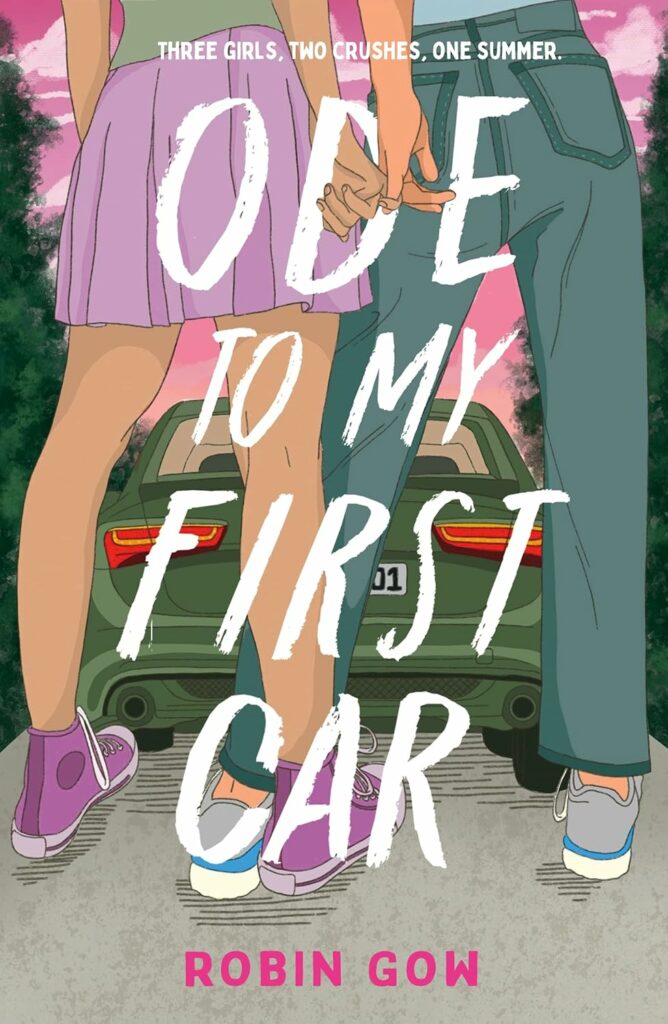
Growing up, were there any stories in which you felt touched by/ or reflected in? Are there any like that now?
Definitely! There are so many it’s hard to list but I definitely loved Sharon Creech’s books. It’s not a book but I also loved Lilo and Stitch as a kid. I connected to Lilo so much and I know it’s not confirmed but I really think she’s a great example of girl autistic character. I felt very seen as someone who grew up a weird queer girl who often didn’t feel like they fit in. I also loved any dog stories. I had a whole dog books phase.
There are so many more books I feel reflected in now. Kacen Callender’s books are a favorite of mine. I also love Ellen Outside the Lines by A.J. Sass and Hell Followed with Us by Andrew Joseph White.
What are some of your favorite elements of writing? What do you consider some of the most frustrating and/or challenging?
I love writing characters. I always think of them as a cross between children and imagined selves and there is so much love and care I put into developing them.
I find plot to be most challenging. I really just enjoy reading characters growing and being themselves and I definitely have to push myself to sew together a clearer story.
What’s a question you haven’t been asked yet but that you wish you were asked (as well as the answer to that question)?
I always want people to ask me if witchcraft plays a role in my writing at all and it absolutely does.
I cast spells and do work around plot points or story details I’m struggling with and it impacts my process.
I don’t think it would be totally appropriate for people to ask but I also want to talk about what it’s like writing about girlhood as someone who isn’t a girl. It feels really healing. It feels like being gentle to a younger version of myself who needed that kindness. Not all trans people have the same relationships with understanding themselves in transition but I very much think of myself as having lived as a girl.
What advice might you have to give for other aspiring writers?
Don’t be too harsh on yourself! Be kind and let yourself be weird and explore your ideas. Commit to them and nurture them even if you end up wanting to shape them differently.
And what advice have you might to give to those specifically interested in writing novels-in-verse?
Read novels in verse! I mean I recommend this to anyone who wants to write. Read with intention. Reflect on what you see others doing and consider what you like and what you might emulate or what you might change. We can learn so much this way. This is really how I learned.
Are there any other projects you are working on and at liberty to speak about?
I have another middle-grade book out this year, Gooseberry! Like I said earlier, I had that strong dog book phase and so I wanted to write a trans kid’s dog story. I can’t wait for people to meet these sweet characters.
Then, I have a manuscript of a novel in verse that’s essentially queer and trans Twilight… it’s unapologetically gay and a wild ride. It doesn’t have a home yet but I have hope for it.
Finally, what LGBTQ+ books/authors would you recommend to the readers of Geeks OUT?
I could give you a list a mile long but I’ll list out a few of my favorites here:
A.J. Sass, Richard Siken, Donika Kelly, KB Bookins, Nicole Melleby, Sonora Reyes, Kacen Callender, Awaeke Emezi, Emery Lee, Andrew Joseph White, Darcie Little Badger, Sophie Gonzales, Anne-Marie McLemore, Casey McQuiston, Jason June, Alex Gino, Eliot Schrefer, Brittany N. Williams, Kosoko Jackson, Dahlia Adler, and Phil Stamper.

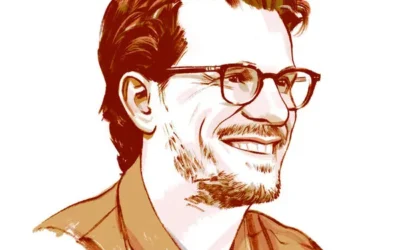
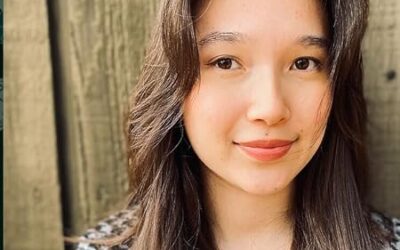
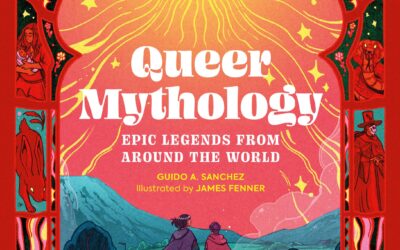
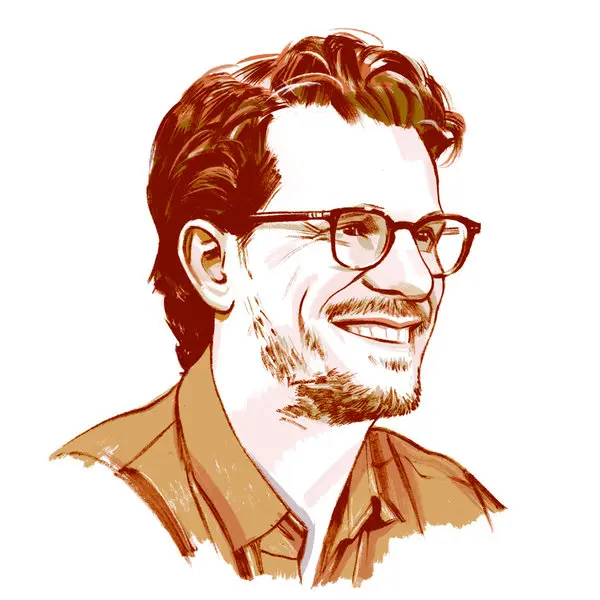
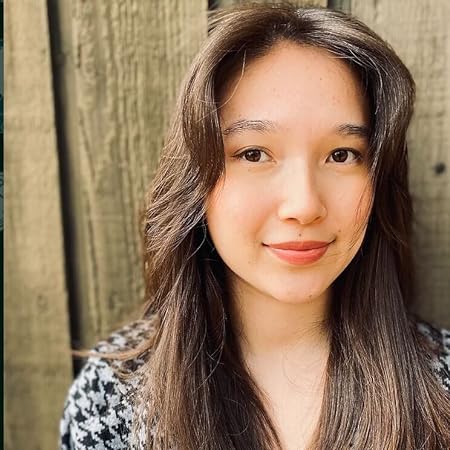
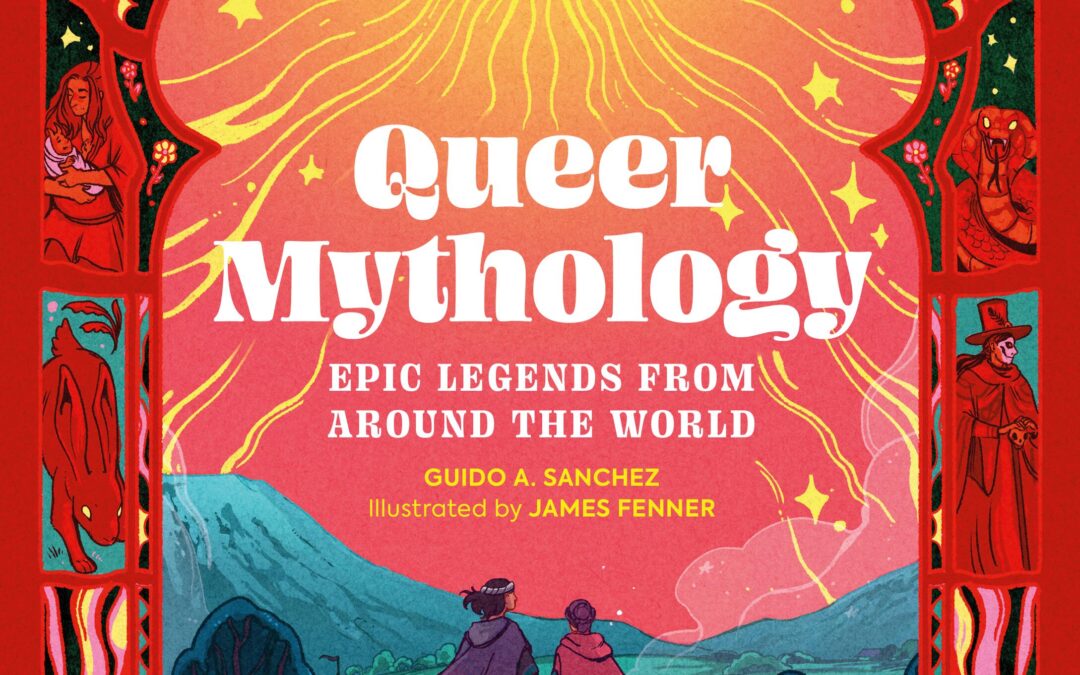
0 Comments